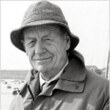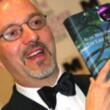The magician: a novel
Description
More Details
9781476785103
9781797122304
9781476785080
Excerpt
Similar Titles From NoveList
Similar Authors From NoveList
Published Reviews
Booklist Review
As with his triumphant fictional biography of Henry James, The Master (2004), Tóibín once again takes as his subject a literary titan, the Nobel laureate Thomas Mann. He first appears as a bright but unremarkable bookish youth in Lübeck, Germany, leading a privileged and sheltered life in the shadow of his senator father. After the patriarch's death, Thomas is aimless and floundering, enduring his mind--numbing clerical job by secretly writing stories. His literary rise is meteoric following the sensation of his novel, Buddenbrooks. He marries the beautiful Katia, the cherished daughter of a wealthy family. His life is charmed and his reputation flourishing. He daringly draws on his homosexual impulses for the groundbreaking Death in Venice, and the publication of his magnum opus, The Magic Mountain, all but assures the attention of the Swedish Academy. Tóibín renders with nuance and grace Thomas' conflicted heart as he is fiercely loyal to his homeland yet forced to flee Nazi Germany and a devoted but emotionally unavailable father whose diaries contain his repressed fantasies of young men. Employing luxurious prose that quietly evokes the tortured soul behind these literary masterpieces, Tóibín has an unequalled gift for mapping the interior of genius. In Mann, Toibin finds the ideal muse, one whose interior is so rich and vast that only a similar genius could hope to capture it. HIGH-DEMAND BACKSTORY: Tóibín is among the most esteemed literary novelists, his books always top-of-the-list.
Publisher's Weekly Review
The Booker-shortlisted Tóibín (House of Names) unfurls an expansive fictional biography of Thomas Mann, a Nobel laureate who was devoted to family, obsessed with physical beauty, and driven by desire. Tóibín draws on excerpts from Mann's diary entries, exposing unrequited loves and erotic encounters with male classmates and boarders as a young man in Lübeck, Germany, around the turn of the 20th century. The Mann who emerges in these pages is a man led by dangerous impulses and constantly pursued by the "lure of death and the seductive charm of timeless beauty" who creates a thinly veiled depiction of a merchant family from Lübeck in Buddenbrooks, records his hypersexual attraction to a young Polish boy in Death in Venice, and draws from his visits to his ailing tubercular wife at a sanatorium for The Magic Mountain. An academic sojourn in Princeton and worldwide lecture tours lead a U.S. State Department official to tell him, "after Einstein, you are the most important German alive." But a series of traumatic events including several suicides (siblings and two of his six children) compound the effects of the wars and his struggles with his sexuality, and he goes into exile in the Pacific Palisades. The glory of music dominates much of the novel--the strains of Wagner's Lohengrin; the "collision between bombast and subtlety" of Mahler's Eighth Symphony; and the glow said to have radiated from Bach when his music was performed, which Mann aspires to replicate in prose. This vibrates with the strength of Mann's visions and the sublimity of Tóibín's mellifluous prose. Tóibín has surpassed himself. (Sept.)
Kirkus Book Review
The Irish writer's fictional portrait of Thomas Mann highlights his family life. What adventures the Mann children have. Erika weds W.H. Auden to get a British passport. Monika survives the torpedo attack that sank the SS City of Benares in World War II. Golo finds that Alma Mahler wants to bring 23 suitcases along in their escape from occupied France. Tóibín chronicles the Mann clan--Thomas' parents and siblings, his wife, and their six children--across some seven decades. It's a busy, comprehensive narrative centered on a complex, conflicted husband, father, and writer facing family problems and crises and rarely failing to put in his four hours at the desk before lunch. Half the book's time frame spans two world wars, and German politics is a constant, as some Manns are vocal while Thomas, always protective of his good name and livelihood, struggles with demands for him to speak out. Three of his grown children are open in their sexual fluidity, but he never publicly acknowledges his feelings about men (his revelatory diaries appeared 20 years after his death). The personal and public history is compelling, but the book may disappoint some readers' expectations. Fans of Mann may question the novel's scant treatment of his writing. Fans of Tóibín's The Master (2005) and its exploration of a crucial four-year span in Henry James' life may be surprised at Tóibín's tackling nearly all of Mann's 80 years. The new novel does at times drag like a conventional biography with the weight of mundane details and repetition, and overall it feels overlong. But Tóibín succeeds in conveying his fascination with the Magician, as his children called him, who could make sexual secrets vanish beneath a rich surface life of family and uncommon art. An intriguing view of a writer who well deserves another turn on the literary stage. Copyright (c) Kirkus Reviews, used with permission.
Booklist Reviews
*Starred Review* As with his triumphant fictional biography of Henry James, The Master (2004), Tóibín once again takes as his subject a literary titan, the Nobel laureate Thomas Mann. He first appears as a bright but unremarkable bookish youth in Lübeck, Germany, leading a privileged and sheltered life in the shadow of his senator father. After the patriarch's death, Thomas is aimless and floundering, enduring his mind-numbing clerical job by secretly writing stories. His literary rise is meteoric following the sensation of his novel, Buddenbrooks. He marries the beautiful Katia, the cherished daughter of a wealthy family. His life is charmed and his reputation flourishing. He daringly draws on his homosexual impulses for the groundbreaking Death in Venice, and the publication of his magnum opus, The Magic Mountain, all but assures the attention of the Swedish Academy. Tóibín renders with nuance and grace Thomas' conflicted heart as he is fiercely loyal to his homeland yet forced to flee Nazi Germany and a devoted but emotionally unavailable father whose diaries contain his repressed fantasies of young men. Employing luxurious prose that quietly evokes the tortured soul behind these literary masterpieces, Tóibín has an unequalled gift for mapping the interior of genius. In Mann, Toibin finds the ideal muse, one whose interior is so rich and vast that only a similar genius could hope to capture it. HIGH-DEMAND BACKSTORY: Tóibín is among the most esteemed literary novelists, his books always top-of-the-list. Copyright 2021 Booklist Reviews.
Library Journal Reviews
If it takes a great author to write about a great author, we're all set with Costa Novel Award—winning, Booker Prize short-listed Tóibín's reimagining of Nobel Prize winner Thomas Mann. Tóibín moves from Mann's conflicted childhood and marriage into a Jewish family to his fateful encounter with a beautiful boy on a Venice beach and flight to America with the rise of Nazism. With a 175,000-copy first printing and a 10-city virtual or in-person tour.
Copyright 2021 Library Journal.Publishers Weekly Reviews
The Booker-shortlisted Tóibín (House of Names) unfurls an expansive fictional biography of Thomas Mann, a Nobel laureate who was devoted to family, obsessed with physical beauty, and driven by desire. Tóibín draws on excerpts from Mann's diary entries, exposing unrequited loves and erotic encounters with male classmates and boarders as a young man in Lübeck, Germany, around the turn of the 20th century. The Mann who emerges in these pages is a man led by dangerous impulses and constantly pursued by the "lure of death and the seductive charm of timeless beauty" who creates a thinly veiled depiction of a merchant family from Lübeck in Buddenbrooks, records his hypersexual attraction to a young Polish boy in Death in Venice, and draws from his visits to his ailing tubercular wife at a sanatorium for The Magic Mountain. An academic sojourn in Princeton and worldwide lecture tours lead a U.S. State Department official to tell him, "after Einstein, you are the most important German alive." But a series of traumatic events including several suicides (siblings and two of his six children) compound the effects of the wars and his struggles with his sexuality, and he goes into exile in the Pacific Palisades. The glory of music dominates much of the novel—the strains of Wagner's Lohengrin; the "collision between bombast and subtlety" of Mahler's Eighth Symphony; and the glow said to have radiated from Bach when his music was performed, which Mann aspires to replicate in prose. This vibrates with the strength of Mann's visions and the sublimity of Tóibín's mellifluous prose. Tóibín has surpassed himself. (Sept.)
Copyright 2021 Publishers Weekly.































